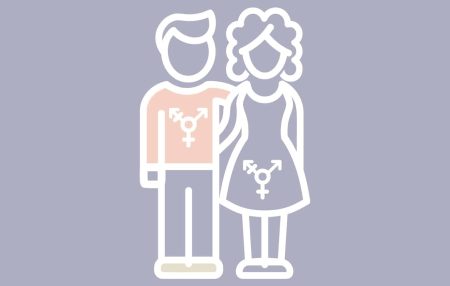10 August 2022
Latest figures from the Office for National Statistics (ONS) give important insight into the changing face of family life and fertility in England and Wales. They show that for the first time last year (2021), more babies were born outside of marriage in England and Wales than within marriage. They also show long-term trends in decreasing live births and increasing later-life parenthood as more people delay having children to focus on their careers.
Live births and fertility rates
According to latest statistics from the ONS the number of live births in England and Wales increased annually for the first time since 2015, with 624,828 live births representing an increase of 1.8% compared with 2020 (613,936). However, the number of live births in 2021 is lower than numbers before the Covid-19 pandemic and they are in line with a long-term trend of decreasing live births.
There were also 2,597 stillbirths in 2021 in England and Wales, each a bereavement for the individuals and families involved. Overall, the stillbirth rate in 2021 increased to 4.1 stillbirths per 1,000 total births compared with 3.8 in 2020, representing a higher rate than before the Covid-19 pandemic. Many causes of stillbirth are unknown, although some reasons can include infection, pre-eclampsia, placenta abruption, congenital abnormality and fetal growth restriction.
Of the 6224,828 live births in England and Wales in 2021, approximately 321,000 of these were born outside of marriage or a civil partnership, whilst approximately 304,000 were born within one. This shift away from marriage indicates growing acceptance of non-traditional family building and family forms in England and Wales.
Later-life parenthood
The majority of the live births in England and Wales in 2021 were born to women in their thirties according to the latest ONS statistics. Whilst 119,413 babies were born to women in their twenties, 341,680 babies were born to women in their thirties. This represented the ninth year in a row that women’s thirties was the most popular decade to have children.
Of significant note is the fact that the latest ONS figures reveal that twice as many women aged 40 and over became mothers (30,542) in 2021 in England and Wales compared to teenagers (13,738). Just twenty years ago, there were three times as many teenage mothers as those over 40. Growing trends in later-life parenthood can be attributed to more people delaying having children to build their careers, increasing acceptance of non-traditional family forms and advances in IVF and other fertility treatments.
However, there are additional risks associated with later-life parenthood. Advancing age can increase the risks of developing a serious health problem or pregnancy complications including birth defects, miscarriage and a difficult labour and delivery.
Click here to read more about issues associated with later-life parenthood.
Specialist Fertility and Family Law Advice
Family building, assisted conception and later-life parenthood can raise complex legal and wider issues. Bespoke expert fertility and family law advice helps effectively project manage your family building journey. It also enables you to identify, understand and proactively navigate a range of legal and wider issues and risks, place your family building and life on a firm foundation and get the best outcome. In doing so, it can:
- Legal issues and options where women and men face impaired fertility or lost fertility due to cancer diagnosis or other illness, unsuccessful conception attempts, change in gender, change in personal circumstances, delayed parenthood (e.g. fertility preservation and maximisation, management of existing personal relationships and implications of using donor gametes and fertility treatment).
- Legal issues and options associated with assisted conception involving a known donor, co-parent or surrogate (e.g. legal parentage, parental rights, financial responsibility and dispute mitigation).
- Difficulties with storage and use of frozen eggs, sperm and embryos in fertility treatment in the UK (e.g. problems with consent).
- Issues associated with import of frozen gametes and embryos into the UK for use in fertility treatment and surrogacy (e.g. due to anonymous and commercially obtained gametes and embryos which engage UK public policy restrictions).
- Issues concerning the export of frozen gametes and embryos abroad for use in fertility treatment and surrogacy (e.g. consent and storage term difficulties).
- Unexpected death of a loved-one and related issues associated with posthumous storage and use of eggs, sperm and embryos in fertility treatment (e.g. due to an accident or illness).
- Legal parentage issues and disputes (e.g. concerning DNA testing, direct-to-consumer genetic testing, rectification of birth certificate, declaration of parentage, step-parent adoption, recognition of overseas adoption, parental order).
- Care and upbringing of children following a dispute with an ex-partner, parent, donor or surrogate (e.g. contact, residence, financial arrangements, parental responsibility, specific issue or prohibited steps).
Click here to read more about these latest ONS Statistics: Births in England and Wales in 2021.




